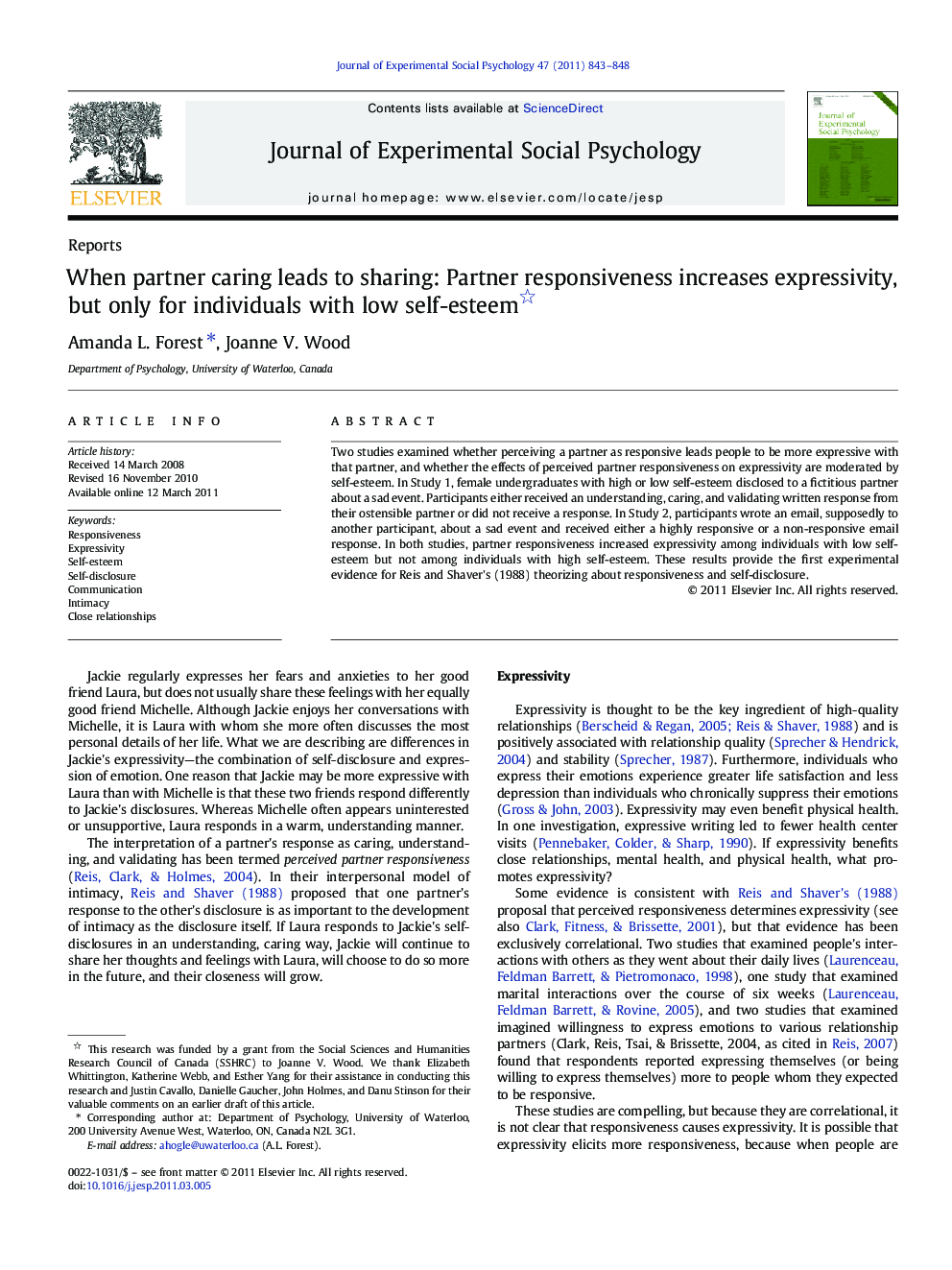| Article ID | Journal | Published Year | Pages | File Type |
|---|---|---|---|---|
| 948193 | Journal of Experimental Social Psychology | 2011 | 6 Pages |
Two studies examined whether perceiving a partner as responsive leads people to be more expressive with that partner, and whether the effects of perceived partner responsiveness on expressivity are moderated by self-esteem. In Study 1, female undergraduates with high or low self-esteem disclosed to a fictitious partner about a sad event. Participants either received an understanding, caring, and validating written response from their ostensible partner or did not receive a response. In Study 2, participants wrote an email, supposedly to another participant, about a sad event and received either a highly responsive or a non-responsive email response. In both studies, partner responsiveness increased expressivity among individuals with low self-esteem but not among individuals with high self-esteem. These results provide the first experimental evidence for Reis and Shaver's (1988) theorizing about responsiveness and self-disclosure.
Research Highlights► We examine whether perceived partner responsiveness increases own expressivity. ► First research to examine this association experimentally. ► First research to examine trait self-esteem as moderator of partner responsiveness. ► Partner responsiveness increases expressivity for people with low self-esteem. ► Responsiveness does not increase expressivity for those with high self-esteem.
